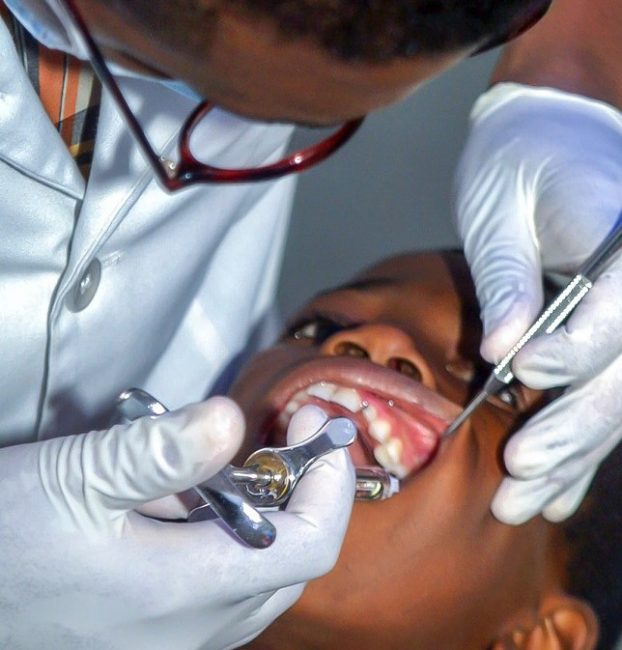Children in Nigeria are battling a host of dental issues, including cavities, gum disease, traumatic dental injuries, and HIV-related dental issues, according to a report published in BMC Oral Health. Of all these conditions, the most pressing one is dental caries, whose prevalence among children ranges from around 11% to 48%.

Percentages vary according to area, ethnicity, and status. For instance, dental cavities are more prevalent in the north than in the south; the Efik/Ibibio and Yoruba have the lowest prevalence of caries; and children from low-income families tend to use dental care services less often than those from middle-to-high-income families. Further, percentages of cavities among children are lower in Nigeria than in many developing countries. However, problems still exist, and above all, untreated cavities present the greatest issue. As stated by the researchers in the above report, barriers exist that stop children from getting the care they need.
Children are Going to the Dentist Too Late
Children should visit the dentist at around the age of one, or six months after their first tooth has emerged. One study carried out on children in Lagos, however, found that most children in this part of Nigeria visit a dentist for the first time between the ages of seven and nine. Early dental visits are vital because during a visit, dentists can identify potential issues such as the early need for braces to make room for teeth to grow, or issues with a child’s bite or jaw development. Often, when orthodontics are applied early, it can remove the need for further, more complex and more uncomfortable work later on. Sometimes, an orthodontist may simply use a small number of brackets or an expander to prevent problems from occurring.
Visiting a dentist for a clean at least once a year can also help identify tiny caries that can be removed quickly and painlessly. Milk (or primary teeth) should not be allowed to develop decay even though these teeth will eventually fall. This is because primary teeth make space for permanent teeth to grow into properly later. Greater awareness of the importance of tackling dental problems early needs to be fostered in schools and in local communities.
Not Enough Nigerian Children are Having their Cavities Treated
Currently, school health programmes are in place that enable children to be screened for cavities and referred to a dentist for treatment. However, evidence suggests that even when children are notified they have cavities, they do not seek treatment. Folayan and colleagues suggest that offering tooth restoration as part of school dental health programs would go a long way towards reducing the rate of untreated caries. Some of the cost of treatment, they argue, should be covered by the NHIS.
Currently, the latter covers restorative treatment but not tooth cleanings, for instance. A second problem is that not all Nigerian children are at school. Therefore, dental health programs need to be offered within communities themselves as well. Finally, societal norms must be battled; many Nigerians still associate visits to a clinic with illness. The government should take steps to highlight the important link between tooth and gum disease and serious diseases such as heart disease among local populations.
Children with Special Healthcare Needs at a Higher Risk of Poor Oral Health
A study by Akinwonmi BA and Adekoya-Sofowora CA on children in Ile-Ife found that those with special health care needs had a higher prevalence of gum disease and problems with their bite, compared to children and teens without special health needs. In many cases, decay was severe, affecting the tooth pulp. The researchers argue that there is a big need for dental health education in schools. Professional dental visits to schools, they say, will also go a big way towards improving both dental health awareness and health. Dentists can not only treat children but also inform them of the importance of correct brushing and flossing techniques.
Children in Nigeria have a lower rate of caries that in some other developing nations. However, the rate of untreated cavities is high. So, too, is the rate of problems among specific groups in the population. With the help of the government, the oral health of Nigerian children can be significantly increased. This can be achieved, say academics, through education and awareness, but also through crucial dental visits to schools, with costs being partially covered by the NHIS.
By Cassandra Ally
